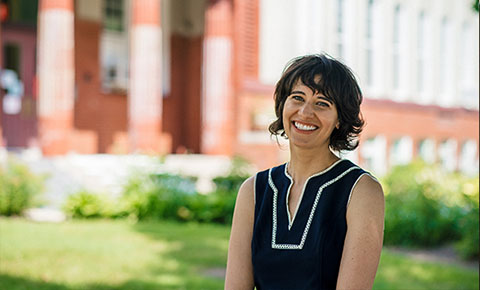OpEd: The Pitfalls of School Metrics

One size-fits-all metrics don’t fairly measure what matters most in many schools – a student’s mental health, Northwestern University sociologist Simone Ispa-Landa argues in a recent opinion piece in the Washington Post.
In the article “Why one-size-fits-all metrics for evaluating schools must go,” Ispa-Landa and coauthor Wendy Espeland explain how good policy intentions can go awry, and how even savvy educators are burdened by the workarounds they’ve designed to help students.
In Illinois, for example, the State Board of Education created a single metric to capture a school’s use of problematic and racially-biased discipline. It seemed like a good solution; the metric is based on just three factors: the rate of out-of-school suspensions, out-of-school expulsions, and the differences in these rates for White students and students of color.
But Illinois now ranks all public schools according to how they do on this one metric. “Schools that fall within the top 20 percent are put on a highly publicized ‘bad’ list and must submit plans to remediate the problem. Local news outlets are eager to report the results, often to the embarrassment and dismay of hard-working administrators,” they wrote.
Their research suggests that “school leaders are pressured to devote enormous time and energy to ‘improving the numbers,’ even when this comes at the expense of making changes that, in private, they acknowledge would be far more impactful for students.”
Ispa-Landa and Espeland also outline promising and creative strategies that educators use to improve student mental health. “But these don’t factor into the rankings, leading them further into the spiral of time-consuming efforts to mark, measure, and quantify,” they wrote.
The sociologists call for dismantling the ranking systems that creates burdensome busywork and prevents real improvement.
“Right now, what matters most is finding ways to address and improve students’ mental health so they can get back on track with learning,” they wrote. “We should reward schools for innovation, for creating programs that will take time to evaluate.”
Ispa-Landa is associate professor of human development and social policy at the School of Education and Social Policy and associate professor of sociology at the Weinberg College of Arts and Sciences. Her research examines the sociology of education, race and gender, and youth peer cultures. Follow her on Twitter.
Espeland is professor of sociology at Weinberg, and the coauthor of “Engines of Anxiety: Academic Rankings, Reputation, and Accountability."